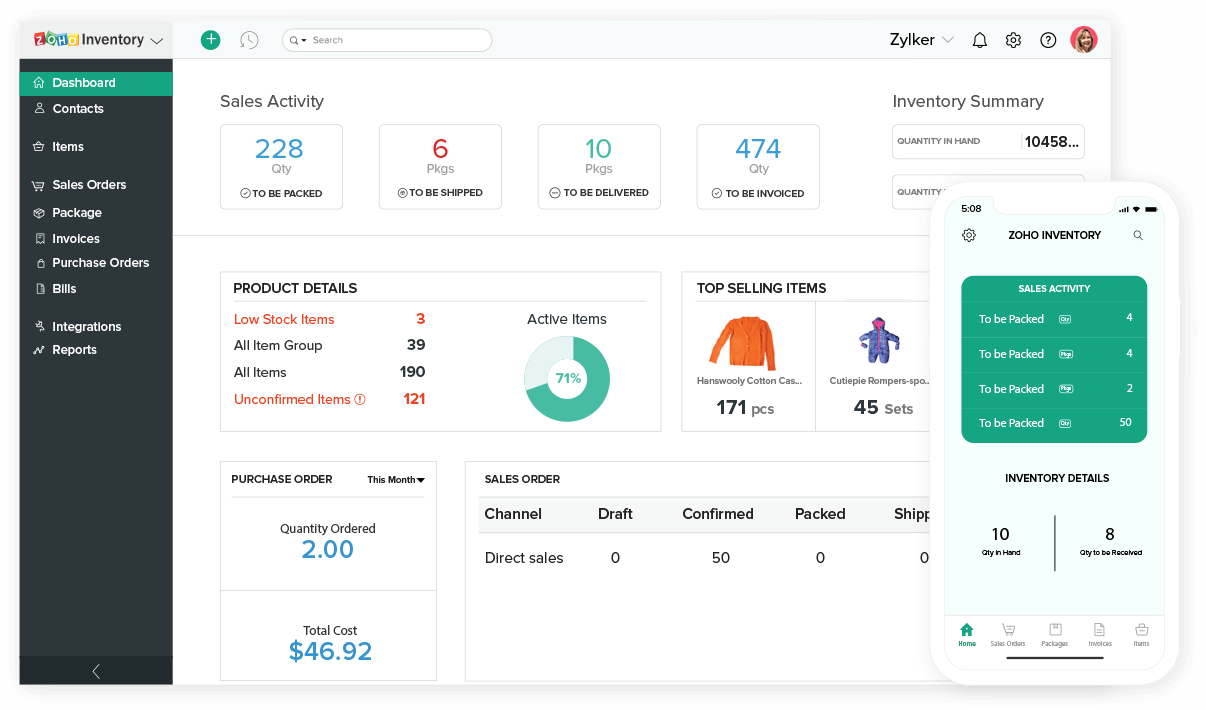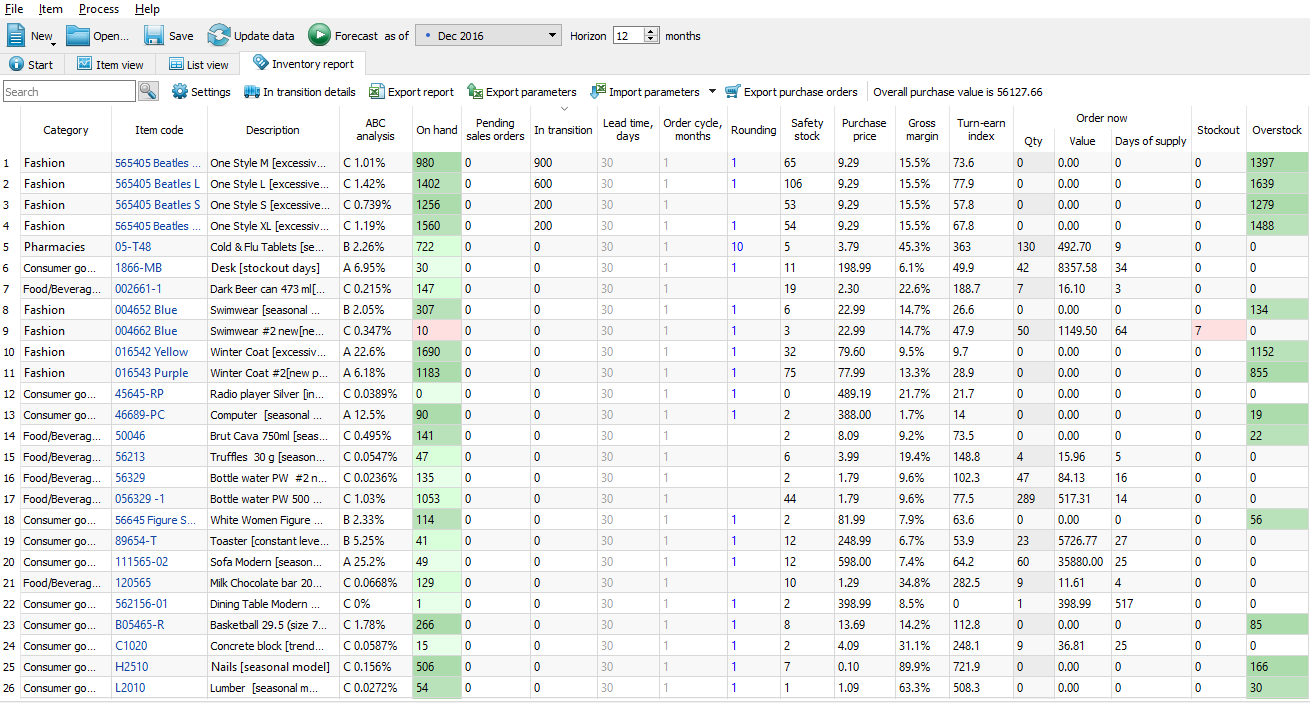As inventory and business software take center stage in the modern business landscape, they have emerged as indispensable tools for businesses seeking to streamline operations, enhance efficiency, and drive growth. These powerful solutions provide a comprehensive suite of features designed to empower businesses with real-time visibility into their inventory levels, automate complex processes, and make informed decisions.
From inventory management systems that provide real-time tracking of stock levels to comprehensive business software solutions that integrate seamlessly with accounting, CRM, and other essential applications, the integration of inventory and business software has become a game-changer for businesses of all sizes.
Inventory Management Systems
Inventory management systems are software solutions that help businesses track and manage their inventory levels. They provide a centralized platform for businesses to monitor stock levels, track inventory movements, and generate reports on inventory performance.
Key Features of Inventory Management Systems
- Inventory tracking: Inventory management systems allow businesses to track the quantity and location of their inventory items in real time.
- Inventory forecasting: These systems can help businesses forecast future demand for inventory items based on historical data and current trends.
- Reorder point management: Inventory management systems can help businesses determine the optimal reorder point for each inventory item, ensuring that they have enough stock on hand to meet demand without overstocking.
- Reporting: Inventory management systems can generate a variety of reports on inventory performance, such as inventory turnover, stock levels, and reorder points.
Types of Inventory Management Systems
There are several different types of inventory management systems available, each with its own unique features and benefits. Some of the most common types of inventory management systems include:
- Perpetual inventory systems: Perpetual inventory systems track inventory levels in real time, providing businesses with up-to-date information on their inventory. These systems are typically used by businesses with high inventory turnover rates.
- Periodic inventory systems: Periodic inventory systems track inventory levels at specific intervals, such as monthly or quarterly. These systems are typically used by businesses with low inventory turnover rates.
- Cloud-based inventory management systems: Cloud-based inventory management systems are hosted in the cloud, providing businesses with access to their inventory data from anywhere with an internet connection. These systems are typically used by businesses that need to manage inventory across multiple locations.
- On-premises inventory management systems: On-premises inventory management systems are installed on a business’s own servers. These systems are typically used by businesses that have a large volume of inventory or that require a high level of customization.
Business Software Solutions

Business software solutions are a vital part of any modern business. They can help businesses improve their operations in a number of ways, from automating tasks to managing customer relationships.
There are many different types of business software solutions available, each designed to meet the specific needs of a particular business. Some of the most common types of business software solutions include:
Enterprise Resource Planning (ERP)
- ERP systems are designed to integrate all of the different functions of a business into a single system.
- This can help businesses improve their efficiency and productivity by eliminating the need for multiple systems and manual processes.
- Some of the most popular ERP systems include SAP, Oracle, and Microsoft Dynamics.
Customer Relationship Management (CRM)
- CRM systems are designed to help businesses manage their relationships with their customers.
- This can help businesses improve their customer service and increase sales.
- Some of the most popular CRM systems include Salesforce, HubSpot, and Zoho.
Accounting Software
- Accounting software is designed to help businesses manage their finances.
- This can help businesses track their income and expenses, create invoices and reports, and file their taxes.
- Some of the most popular accounting software includes QuickBooks, Xero, and NetSuite.
Project Management Software, Inventory and business software
- Project management software is designed to help businesses plan, track, and manage their projects.
- This can help businesses improve their efficiency and productivity by ensuring that projects are completed on time and within budget.
- Some of the most popular project management software includes Asana, Trello, and Basecamp.
Integration of Inventory and Business Software

Integrating inventory and business software systems can significantly enhance operational efficiency and provide valuable insights for businesses. This integration allows for seamless data exchange between the two systems, eliminating manual data entry and reducing the risk of errors. By combining real-time inventory data with other business functions, companies can optimize their supply chain management, improve customer service, and make informed decisions.
Benefits of Integrating Inventory and Business Software
The benefits of integrating inventory and business software include:
- Improved inventory accuracy and reduced shrinkage.
- Increased efficiency in order fulfillment and shipping.
- Enhanced customer service through real-time inventory visibility.
- Better forecasting and planning based on real-time demand data.
- Reduced costs through optimized inventory levels and reduced manual labor.
Challenges of Integrating Inventory and Business Software
While integrating inventory and business software offers numerous benefits, there are also challenges that need to be considered:
- Data compatibility issues between different software systems.
- Complexity of integrating legacy systems with modern software.
- Cost and time required for implementation and maintenance.
- Need for technical expertise and resources to manage the integration.
- Potential disruption to business operations during the integration process.
Examples of Successful Integrations
Several companies have successfully integrated inventory and business software to improve their operations. For example, Amazon’s integration of its inventory management system with its e-commerce platform allows for real-time inventory updates, efficient order fulfillment, and improved customer satisfaction. Similarly, Walmart’s integration of its inventory data with its supply chain management system has enabled the company to optimize inventory levels, reduce waste, and improve profitability.
Best Practices for Inventory and Business Software Management
Effective management of inventory and business software is crucial for smooth business operations. By implementing best practices, businesses can optimize their inventory and software systems, ensuring accuracy, efficiency, and cost-effectiveness.
Regular maintenance and updates are essential for keeping inventory and business software running smoothly. Updates often include bug fixes, security patches, and new features that enhance functionality and performance.
Tips for Optimizing Inventory and Business Software Performance
- Conduct regular audits: Regularly audit inventory levels and software functionality to identify any discrepancies or inefficiencies.
- Utilize automation: Automate tasks such as inventory tracking, order processing, and data entry to minimize errors and improve efficiency.
- Integrate systems: Integrate inventory and business software to streamline data flow and eliminate manual processes.
- Train staff: Provide comprehensive training to staff on inventory and business software usage to ensure proper implementation and adoption.
Future Trends in Inventory and Business Software

Inventory and business software are constantly evolving to meet the changing needs of businesses. Emerging trends in these areas will significantly impact how businesses operate in the future. By understanding these trends, businesses can position themselves to take advantage of the opportunities they present.
One of the most significant trends in inventory and business software is the increasing adoption of cloud-based solutions. Cloud-based software offers several advantages over traditional on-premise software, including lower costs, greater flexibility, and improved scalability. As more businesses move to the cloud, they will need to adopt inventory and business software solutions that are compatible with cloud platforms.
Another key trend is the increasing use of artificial intelligence (AI) in inventory and business software. AI can be used to automate tasks, improve decision-making, and provide real-time insights into inventory levels and business performance. As AI continues to develop, it will play an increasingly important role in inventory and business software.
Integration with E-commerce Platforms
The integration of inventory and business software with e-commerce platforms is becoming increasingly important. This integration allows businesses to manage their inventory and orders across multiple channels, providing a seamless experience for customers. As e-commerce continues to grow, businesses will need to adopt inventory and business software solutions that can integrate with their e-commerce platforms.
Real-Time Inventory Tracking
Real-time inventory tracking is becoming increasingly important for businesses. This allows businesses to track their inventory levels in real time, which can help them avoid stockouts and improve customer satisfaction. As businesses become more reliant on real-time data, they will need to adopt inventory and business software solutions that provide real-time inventory tracking capabilities.
Predictive Analytics
Predictive analytics is becoming increasingly important for businesses. This allows businesses to use data to predict future trends and make better decisions. As businesses become more data-driven, they will need to adopt inventory and business software solutions that provide predictive analytics capabilities.
Concluding Remarks
In conclusion, inventory and business software have revolutionized the way businesses manage their operations. By leveraging these powerful tools, businesses can optimize inventory levels, streamline processes, enhance decision-making, and gain a competitive edge in today’s dynamic market. As technology continues to advance, we can expect even more innovative and sophisticated solutions that will further empower businesses to achieve operational excellence.
Questions Often Asked
What are the key benefits of using inventory management software?
Inventory management software provides businesses with numerous benefits, including real-time visibility into inventory levels, automated inventory tracking, reduced stockouts and overstocking, improved order fulfillment, and enhanced decision-making.
How can business software solutions help businesses improve their operations?
Business software solutions offer a wide range of benefits for businesses, such as streamlined processes, improved efficiency, enhanced collaboration, increased productivity, and better decision-making.
What are the challenges of integrating inventory and business software?
Integrating inventory and business software can present challenges such as data compatibility issues, complex implementation processes, and the need for ongoing maintenance and updates. However, the benefits of integration often outweigh the challenges.